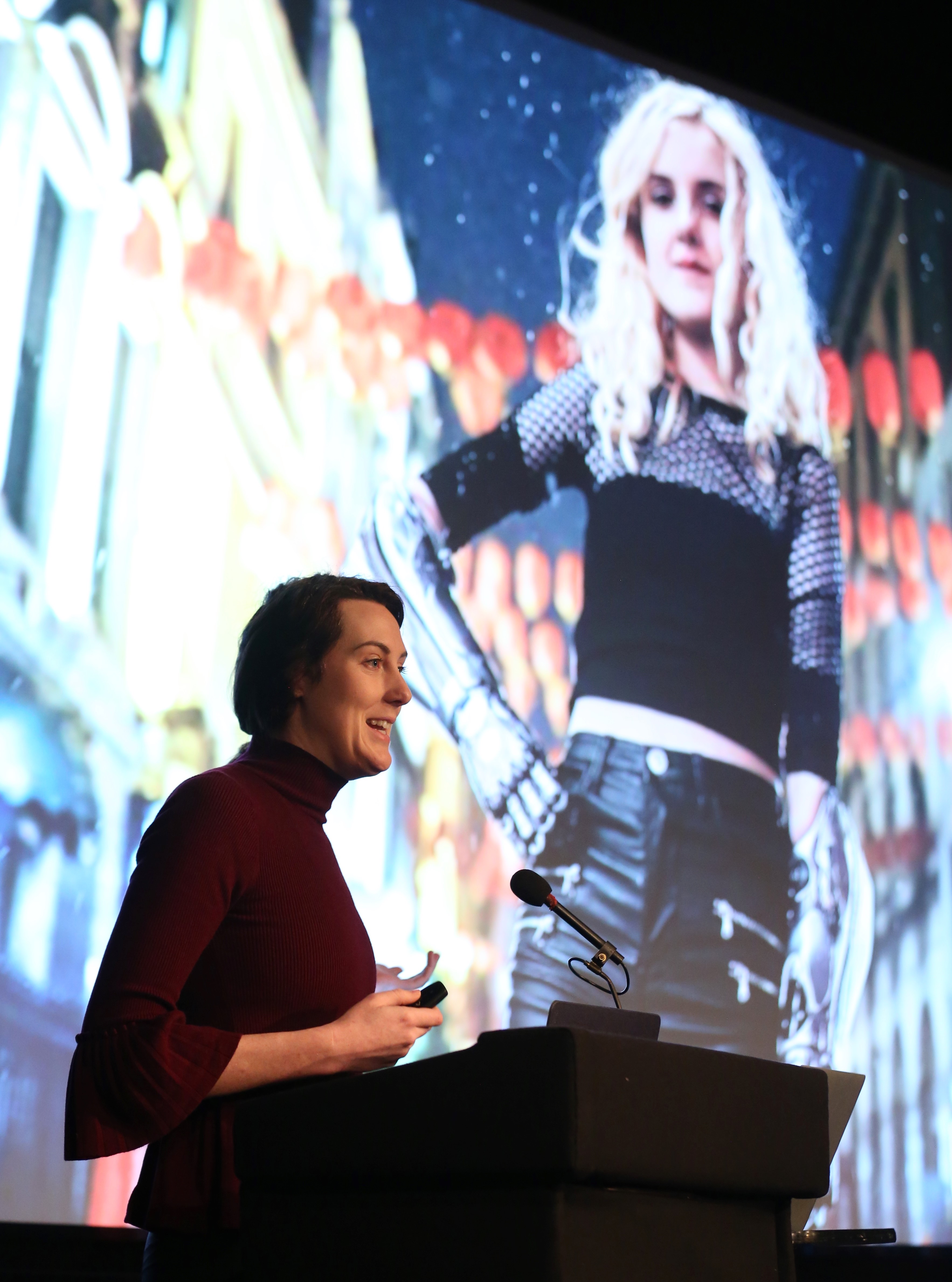
Creative Sector Growth Support
Funding and support for small to medium size businesses in the creative sector
How we have supported the Creative Sector
The West of England Combined Authority has been committed to supporting the Creative sector in the region, offering £2.2m in grant funding to 381 Creative Businesses and Freelancers as well as a range of business support offers. Find out more about how we've supported the sector below:

Creative Scale Up
The Creative Scale Up Programme was a £1.3m DCMS funded pilot programme running from 2019-2022, which aimed to accelerate the growth of already scaling creative industries businesses through sector-specific support combined with investor engagement. The business support programme offered a unique package of support, including:
- Peer to Peer network sessions delivered through Watershed Arts Trust
- A bespoke training package designed in consultation with the business cohort
- A £6,000 grant to spend on 1-1 sessions with a mentor chosen by the business
- The opportunity to apply for a further £2,000 business development grant
The Creative Sector Growth Programme is a way of Creative businesses taking part in a programme that's regular, and helps them to look across the business, to explore what the potential is for them.
The people delivering the programme are all people who have creative sector business experience.
They've all grown companies, they've all delivered businesses.
“The WECA Programme provided access to funding for mentorship from a specialist consultant who we could choose ourselves.
“I found this amazing mentor who understood what my vision was, what the purpose was and had the experience in the industry.
“After the first meeting I think, I kind of sat down and was like 'Wow, this is what I needed now'.
It's a mentoring programme that allows the business to attract experienced individuals to work with them directly, and it's a peer network, it's a safe space where each of the founders can learn from others like them.
We want the people who are beavering away at creative ideas, or maybe have just started out.
For growing entrepreneurs, especially from black, ethnic minority or minoritised communities.
I really do think that the industry can't represent you, as much as you would like it to represent you.
So the best thing is for you to get involved.
I would particularly recommend that women in business apply to the Creative Sector Growth Programme because it seriously helps you to grow your network, your platform, the skills that you then have to grow your business in an under-represented industry.
I've never heard of a programme before that provides you with finance to find a mentor of your choosing. It was so important to us, and has made a massive difference.
One of the greatest aspects of the programme was the peer-to-peer knowledge exchange. So much best practice exchange happening there.
I think that what this actually offers, it offers an opportunity for people to create the content that they would like to see.
If you want to grow, whatever you're doing, as a freelancer, as a creative, as a business owner, and you want to accelerate - it's the perfect programme for you.
Ultimately, if you want to grow and you're in the creative industry, then the WECA programme is something to look at.
Outputs from Creative Scale Up Programme:
- 77 businesses supported over 5 cohorts
- 1500+ hours of mentoring
- 70+ peer support sessions
- 60+ hours of training
- 206 new jobs created
- 38% of businesses grew by at least 40%
 Image credit: Cirque Bijou
Image credit: Cirque Bijou Creative Freelancer & Business Grants
In 2021 a £1.3m grant fund was set up to as part of the Creative & Cultural Recovery Fund. Freelancers could apply for up to £3k to fund a project supporting their professional recovery and resilience in response to the pandemic. Businesses were invited to apply for grants up to £10k to support their business recovery and resilience in response to the pandemic. Business applicants were required to demonstrate how their project would deliver one of the following outputs:
- Spend at least 50% of the grant on paid employment for creative freelancers to support delivery of the project
- Advance diversity and inclusion in the sector by spending at least 50% of the grant on paid employment for artists/creatives to support delivery of the project, from one or more of the following protected characteristic groups; individuals that identify as having a disability, are Black, Asian or Minority Ethnic or women
- Spend at least 50% of the grant on activities that engage local communities in the West of England
Outputs from the Creative Grants:

The Creative Grants saw:
- 66 live events
- 29 pieces of artwork created
- 33 live performances
- 24 podcast episodes produced
- 123 Workshops
- 13 films produced
- 9 bodies of music produced
- 9 exhibitions
- 26 New Products
- 25 New Services
- 14 R&D activity undertaken
- 25 Training and Professional development activities completed
Creative Sector Growth Programme
The Creative Sector Growth Programme (CSGP) was a £800k business support programme, as part of the Creative & Cultural Recovery Fund running from Sept 2021 – August 2022. The CSGP has supported creative businesses and freelancers to grow and build resilience through sector specific training delivered by Watershed, peer to peer support and grants of between £3,000 to spend on mentoring and coaching.
Based on the model of the DCMS funded Creative Scale Up Pilot (2019-2022), CSGP provided 6+ months of intensive business support. However, unlike the scale up programme, CSGP was open to businesses of any size and ownership, including freelancers, micro-businesses and charities.
- 64 SMEs and 36 freelancers supported over 2 cohorts
- 18 training sessions
- 12 peer to peer sessions
- 6 founders talks
- 2 live events







